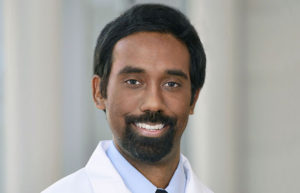
AGA offers dedicated programming for trainees and early career GIs
Avinash G. Ketwaroo, MD, walks through sessions designed to meet the unique needs of DDW® attendees in the early stages of their careers in gastrointestinal medicine.

Avinash G. Ketwaroo, MD, walks through sessions designed to meet the unique needs of DDW® attendees in the early stages of their careers in gastrointestinal medicine.

In addition to sessions in English, DDW is including several sessions in Spanish and Chinese for our international attendees.

DDW® 2019 will offer a wide array of sessions devoted to the newest discoveries in IBD research.

Sponsored by the AGA Institute Clinical Practice Updates Committee, Saturday’s Battle of the Heavyweights: Controversies in Clinical Practice From IBD to NASH session will tackle some of the most puzzling clinical aspects of inflammatory bowel disease, liver disease and pancreaticobiliary disease, according to moderator Joseph K. Lim, MD, AGAF.


Caring for patients with IBD requires a multidisciplinary approach. So the organizers of Tuesday’s DDW® Clinical Symposium Endoscopic and Surgical Principles in IBD set out to create a multidisciplinary educational program. The 90-minute symposium is jointly sponsored by AGA, ASGE and SSAT.
During Tuesday’s SSAT Joint Symposium with the International Society for Digestive Surgery, five experts will examine the appropriate use of minimally invasive surgery in managing cancers of the gastrointestinal tract. The two-hour morning symposium is titled Minimally Invasive Frontier in GI Surgery.

What you learned last year about the treatment of IBD is already out of date.
DDW® attendees can brush up on the latest advances in the diagnosis and treatment of IBD during Monday’s ASGE Clinical Symposium Advances in the Detection and Management of IBD.
Gastroenterologists treating patients with celiac disease face a difficult choice when deciding whether to biopsy. New European guidelines for pediatric patients suggest that serum markers and genetics are sufficient to confirm a diagnosis in many patients. U.S. guidelines still generally call for a biopsy to confirm the diagnosis.